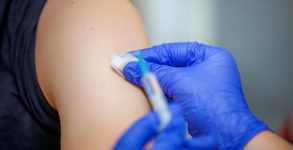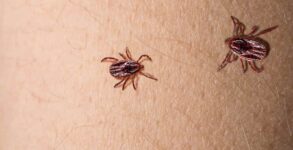Global coronavirus pandemic with high rate of mortality and rapid spread has intensified the need for a vaccine. Research has already started at a rapid pace across the world. It is estimated that around 80 groups around the world, including major pharmaceutical companies, are working to develop the vaccine and also collaborating with each other on a global scale. Vaccine seems to be the only hope to provide much needed immunity to majority of the population, and for states across the globe to resume their routine social and economic activities. The race for finding the solution has brought together researchers, scientists, academics, and industry from all over the world and all efforts are being fast tracked.
The first human trial for vaccine has already begun at the Kaiser Permanente research facility in Seattle, Washington. This vaccine is different in the way that while typical vaccines are made from weakened or killed viruses, mRNA-1273 vaccine contains a harmless, short segment of a genetic code copied from the virus that that scientists have been able to make in a laboratory. It is hoped that this will prime the body’s own immune system to fight off the real infection. Four patients have been given the vaccine and if these initial safety trials go well, it will take up to 18 months for potential vaccine to become available to the public.
China has also approved early stage human tests for two experimental coronavirus vaccines. These are being developed by a Beijing-based unit of Sinovac Biotech and by the Wuhan Institute of Biological Products, an affiliate of state-owned China National Pharmaceutical Group. In March, Beijing gave the green light to another clinical trial for a coronavirus vaccine candidate developed by the military-backed Academy of Military Medical Sciences and biotech firm CanSino Bio, shortly after US drug developer Moderna said it had begun human tests for their vaccine with the US National Institutes of Health.
Two of the world’s largest drug companies, Sanofi and GlaxoSmithKline, and vaccine producers have teamed up for coronavirus vaccine. They are expected to begin clinical tests of their vaccine prototype in the second half of the year. Sanofi is using a recombinant DNA platform that’s been proven in the company’s quadrivalent influenza vaccine FluBlok. The pharma is designing its vaccine around a “spike” protein that is found on the surface of the virus and is essential to its ability to infect human cells. By priming the body against this protein — a common target among drugmakers in the coronavirus vaccine race — Sanofi and others hope to spur an immune response to the actual viral invaders. GSK, which opted against developing its own vaccine, will add its “adjuvant” technology, used to make vaccines more potent and efficient.
No guarantee coronavirus vaccine will be developed: WHO envoy
Two potential coronavirus vaccines made by University of Oxford and US company Inovio Pharmaceutical, have been cleared for animal testing by the World Health Organisation. Australia’s Commonwealth Scientific and Industrial Research Organisation will assess if the vaccines work, and if they would be safe for humans. At the moment the vaccines are being tested on ferrets. Experts warn however that it will still involve a minimum 18-month timeline to meet regulatory tests and standards.
The UK government is also backing a project by the scientists at the University of Oxford who say they should have at least a million doses of coronavirus vaccine by September this year. The first patients are expected to take part in the Oxford trials this Thursday. The government has announced £20m to the Oxford team to help fund its clinical trials, with a further £22.5m going to researchers at Imperial College London.
Meanwhile, India has set up a high-level taskforce to develop the vaccine and coordinate with global researchers. Task force will have Department of Biotechnology as central coordinating authority with representative from ICMR, CSIr, DRDO, MoHFW etc. Indian companies, including Serum Institute, Zydus Cadila, Bharat Biotech and Biological E are also working on the vaccine, but are in preclinical stage.
As the number across the world continue to rise and lockdowns keep extending, the massive economic impact of the virus in terms of lay offs, factory closures, non-payment of wages and collapse of entire sectors like hospitality and aviation becomes serious. Poor, especially in developing countries like India are hardest hit and migrants who are mostly daily wage earners in informal sectors are travelling for days to reach their home as their prospects for next meal become bleaker. A universal immunization with an effective vaccine seems to be the only hope that can halt the spread of this virus. The scientific and medical community has shown unprecedented efficiency in research to bring one as soon as possible. Decades of work that generally goes in developing a vaccine is being compressed into months. A breakthrough is near.


















